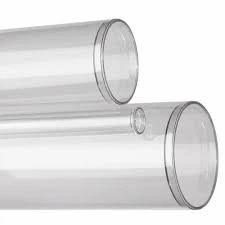Sep . 22, 2024 12:41 Back to list
polypropylene chopping board
The Benefits of Using Polypropylene Chopping Boards in the Kitchen
When it comes to kitchen essentials, chopping boards are often taken for granted. However, the material from which they are made can significantly impact food safety, hygiene, and overall kitchen efficiency. Among various materials available, polypropylene chopping boards stand out for several reasons, making them an excellent choice for both home cooks and professional chefs.
What is Polypropylene?
Polypropylene is a thermoplastic polymer that is widely used in a variety of applications, including packaging, textiles, automotive parts, and, importantly, kitchen tools like chopping boards. Its versatility and durability make it an ideal material for food preparation surfaces.
Hygienic Properties
One of the key advantages of polypropylene chopping boards is their hygienic nature. The material is non-porous, which means it does not absorb liquids or food particles. This property is crucial in preventing the growth of bacteria, germs, and other pathogens that could contaminate food. Polypropylene boards can easily be cleaned in the dishwasher, ensuring that they remain sanitary and safe for food preparation. This convenience is a significant factor for both home kitchens and restaurants, where food safety is paramount.
Durability and Longevity
Polypropylene is known for its exceptional durability. Chopping boards made from this material can withstand the wear and tear of daily use without warping, cracking, or getting scratched easily. Unlike wooden boards, which can develop grooves and crevices where bacteria can hide, polypropylene boards maintain a smooth surface over time, making them a longer-lasting option. This durability translates into cost savings, as they do not need to be replaced as frequently as boards made from less robust materials.
polypropylene chopping board

Versatility
Polypropylene chopping boards come in various sizes and thicknesses, allowing users to choose the perfect option for their kitchen needs. They can be used for various types of food preparation, from cutting vegetables and fruits to carving meats. Additionally, many polypropylene boards are color-coded to help prevent cross-contamination. For instance, a specific color can be designated for raw meats, another for vegetables, and yet another for cooked foods. This organization not only promotes food safety but also enhances efficiency in the cooking process.
Lightweight and Convenient
Another benefit of polypropylene chopping boards is their lightweight nature. This makes them easy to handle, transport, and store. Unlike heavier wooden or bamboo boards, polypropylene boards can be effortlessly moved from one area of the kitchen to another, making them perfect for small cooking spaces or when quick clean-up is needed.
Environmental Considerations
In terms of environmental impact, polypropylene is recyclable, offering a more sustainable option compared to single-use plastics. Many manufacturers are now producing polypropylene boards from recycled materials, which helps reduce waste and promote a circular economy.
Conclusion
In summary, using polypropylene chopping boards in the kitchen brings numerous benefits, including hygiene, durability, versatility, and convenience. As chefs and home cooks strive for safe and efficient food preparation, the choice of chopping board plays a critical role. Opting for a polypropylene chopping board not only enhances the cooking experience but also aligns with sustainable practices, making it a smart addition to any kitchen toolkit. Whether you are a culinary novice or an experienced chef, investing in a quality polypropylene chopping board can make a significant difference in your food preparation routine.
-
High Transparency PVC Clear Sheet Super Transparency PVC Sheets & HDPE Cutting Board Supplier
NewsJul.04,2025
-
High-Quality PVC-M Pipe Supplier Trusted PVC Pipe Company & 75mm PVC Connection Pipe Solutions
NewsJul.04,2025
-
PVC Transparent Sheet Roll - Durable & Flexible PVC Plastic Sheet Roll for Industrial & Home Use
NewsJun.24,2025
-
High-Quality PVC PPR Pipes and Fittings Durable ERA PPR Solutions
NewsJun.10,2025
-
High-Quality Large HDPE Sheets & Large Diameter PVC Pipe Durable Large PVC Pipe Supplier
NewsJun.10,2025
-
High Density Polyethylene Cutting Board - Durable & Food Safe
NewsJun.09,2025

